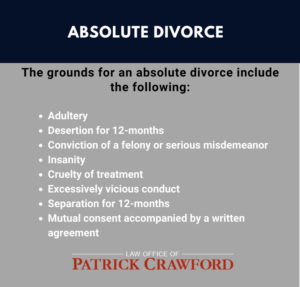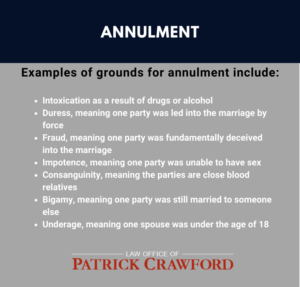In cases in which someone wants to file for divorce but does not have grounds for an absolute divorce, that person may request a limited divorce. A limited divorce does not result in the termination of the marriage, and parties who receive a limited divorce are not free to re-marry. In this sense, a limited divorce is not a real divorce. However, a limited divorce is useful because it allows the parties to address some of the divorce-related issues such as alimony, child support, and child custody while they are waiting for grounds for an absolute divorce to arise. In this way, the parties use the time so that when the grounds for absolute divorce arise, they may obtain their absolute divorce more quickly.
As with an absolute divorce, in order to obtain a limited divorce, a party must prove grounds. A party seeking a divorce must prove only one of the available grounds. Grounds for a limited divorce include the following:
- Desertion
- Cruelty of treatment
- Excessively vicious conduct
- Separation
An annulment is similar to a divorce except it has one major difference. An annulment does not seek to terminate the marriage. An annulment seeks a decision that the marriage was never valid. As with a divorce, to obtain an annulment, a party must show grounds. Grounds for an annulment are rare. The grounds must have existed at the time of the marriage ceremony.
In a case for annulment, the court may still address divorce-related issues such as division of property, alimony, spousal support, child custody, child support, and attorney fees.




